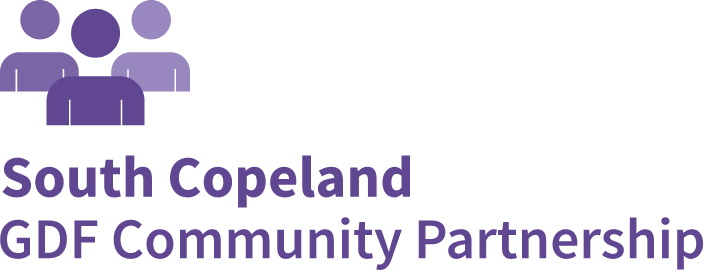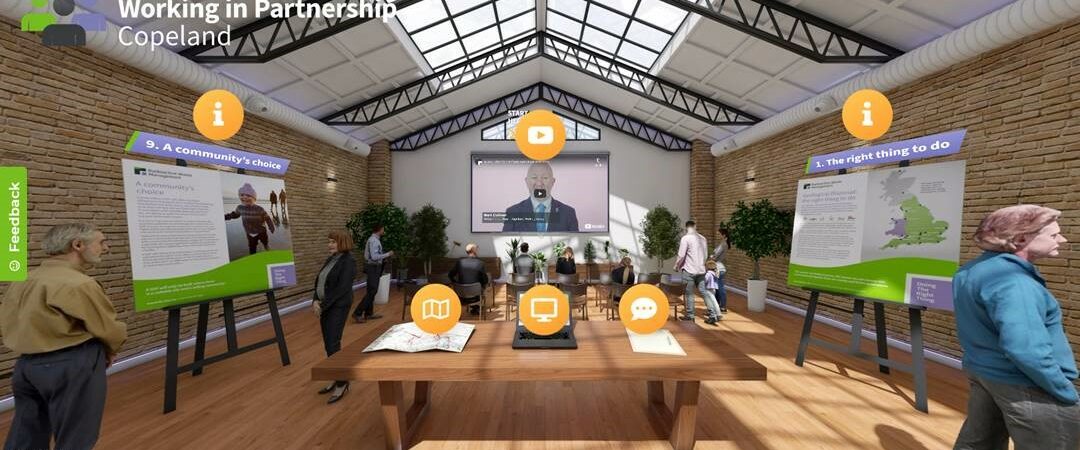Happy New Year to you and welcome to the third edition of the Copeland GDF Working Group newsletter.
Today we’ve launched a ‘virtual exhibition’ to bring the subject of geological disposal to life and give you a better understanding of what it’s all about.
During these current uncertain times it’s more important than ever to offer alternative ways for people to access factual information about what a GDF is, in an easy to understand way.
Please find a link to the interactive virtual exhibition here where you will find videos, graphics and information – including a 360-degree tour – to demonstrate how a GDF works, why it’s needed and what it could mean for Copeland.
It provides the opportunity to find out more about the GDF programme, offers a good source of information and it’s very easy to access, even from a mobile phone.
Please come back to us with your views, comments and questions and feel free to share the virtual exhibition link with anyone who may be interested.
Our engagement with people on the potential for consideration of a GDF somewhere in the area of Copeland is important as part of the search to find a suitable site and a willing community to host a GDF for the UK’s higher activity radioactive waste.
Our Working Group has three main tasks – begin to understand community issues, opportunities and questions about GDF; identify a search area or areas within Copeland which could then befurther investigated for potential locations for a GDF, and identify initial members for a Community Partnership that could take that work forward. The Working Group will not identify specific sites or decide on locations, it will merely suggest areas for further consideration by a Community Partnership.

Mark Cullinan, Independent Chair, Copeland Working Group
Community consent is at the heart of the process and a GDF cannot be built unless there’s a suitable site and a willing community.
Under normal circumstances, we’d be going out to speak to people face to face and offering them the opportunity to see an exhibition. We can’t do that right now, so we want to provide an experience that’s as near to that as possible. Please also take a look at our website for information.
And don’t forget that the Working Group and communities have access to a whole series of experts who can provide further detailed information.
If you’re part of a community group, we would like you to get involved in these early conversations so please do get in touch. We can hold ‘virtual’ meetings and provide you with some content for a newsletter or website. Our email address is: gdfinfo-copeland@nda.gov.uk
Of course, those who don’t have access to online channels can access information through our contact centre, telephone 0300 0660 100.
This is undoubtedly the biggest environmental protection project of our lifetime, please let us know your views, ask questions and get involved.
Take a 360-degree virtual tour of a GDF
The virtual exhibition is designed to offer an interactive experience to help people understand geological disposal.
It’s been designed to replicate digitally the experience of visiting a more conventional exhibition with information stands, a 360-degree virtual tour and infographics to get people involved.
To access the exhibition click here and let us know what you think.
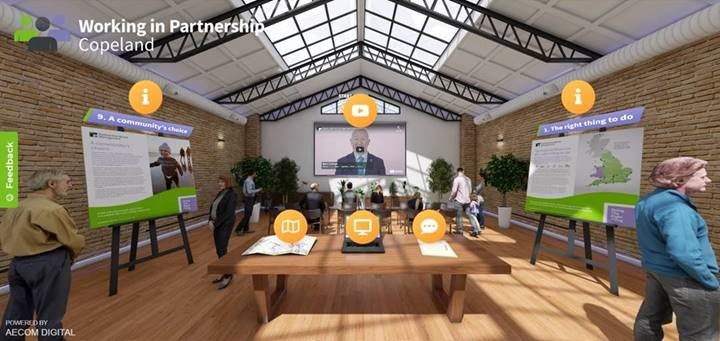
Meet the team
Siting Manager, Barnaby Hudson
To support Copeland Working Group, Radioactive Waste Management (RWM) has a dedicated core team.
Barnaby Hudson is a Siting Manager with RWM and he will support the Working Group with understanding the GDF siting process and related technical matters.
Barnaby has a mining industry background and an Environmental Chartership. His career has provided him with the opportunity to understand the potential environmental and social impacts of large development projects. He’s passionate about ensuring a potential GDF is developed and integrated into a willing host community in a sustainable manner.
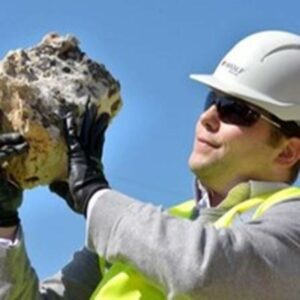
Barnaby Hudson
“Ensuring there’s balance between environment, social and economic factors can be challenging. To aid the Working Group in scoping future conversations we’re asking for people’s views on what local features or issues are important to them.
There are two connected aims that are required to deliver a GDF – finding a community willing to host a GDF and working in partnership to identify a suitable site. The long-term success of the project will link to how locally important features and issues are recognised and guide the project’s development.”
To support the formation of the Working Group, a series of Initial Evaluation Reports were undertaken by RWM in response to initial discussions with four interested parties.
The reports concluded there may be potential to host a GDF in all of the proposed areas of interest. RWM and all interested parties agreed to open discussion more widely in the community and formed the Copeland Working Group in November.
One of the early tasks of the Working Group is to identify an area or areas for further consideration by a Community Partnership with RWM – known as a ‘Search Area’. The Search Area can be refined further over time by a Community Partnership as investigations progress but the Working Group will identify an area to start with.
Barnaby will help the Working Group in identifying a search area, or areas, by bringing together readily available information, alongside the views being gathered through local engagement.
The identification of the search area or areas will be conducted in early 2021.
Chris Shaw and Andy Pratt – Cumbria Association of Local Councils (CALC)

Andy Pratt
Chris Shaw and Andy Pratt are members of Copeland GDF Working Group, representing local town and parish councils. Chris is Parish Liaison Officer and Andy is the Copeland District Association Chair.
CALC is a not-for-profit membership organisation representing, training and advising parish and town councils across Cumbria who form the grassroots tier of local government in England. In Copeland all parish and town councils are members of CALC.
What is your role on the Working Group?
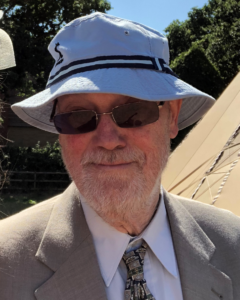
Chris Shaw
To be the voice of all the parishes in Copeland. We are here to represent them, ask questions on their behalf and feedback information. People can be confident we will speak up for them and represent their interests.
How important are parish and town councils in local decision-making?
Town and parish councils are an essential part of the structure of local democracy and have a vital role in acting on behalf of the communities they represent.
We are the grassroots organisations which are nearest to local people.
Public participation is key in this GDF process, how can you help with that?
We can help to get people involved by sending out information, help them keep up-to-date with developments, signpost them to get to the right place for the information they need. Many people in this area know a great deal about radioactive waste – it’s a knowledgeable and experienced community – but they may not know all about geological disposal. CALC also holds meetings with representatives from districts and the county council (three-tier meetings) and this will be a regular item on the agenda.
How are you adapting your communication during the Covid pandemic to ensure voices are heard?
Almost all of our parishes are having meetings on a virtual basis, we’ve got back to normal monthly meetings so the lines of communication are very much open – people are accepting this as the new normal. There will be some who still telephone us or write letters and we still very much encourage that.
How can people contact you?
We’re very accessible and always happy to help.
Please contact Chris via email: Chris.Shaw@cumbria.gov.uk or telephone 07551 678521. Andy can be contacted via email: andrew.pratt7@btinternet.com or telephone 07720 372273.
Alternatively, you can write to: Cumbria Association of Local Councils, Fire and Rescue Service Headquarters, Carleton Avenue, Penrith CA10 2FA.
Open to question
Since the Working Group was launched, we’ve had a range of questions from the public. Each issue we’ll aim to answer questions, and there are more on our website.
Some have been asking us what is different about the approach to geological disposal this time around. Here we provide answers:
The previous siting process ended. What’s different this time?
A more flexible approach – The previous process was rigidly staged and required local authorities to make decisions at pre-determined points before further work could be carried out to answer community questions.
More information to help start and guide discussions – Much more information about geology is available from the outset.
Early investment – Early investment funding (of up to £2.5 million annually per community) is available for local initiatives, recognising that jobs and other major investments will only materialise later.
Anyone can contact us – to find out more about the process for identifying and selecting a site for a Geological Disposal Facility: an individual, a landowner, local authority, business or a community group
Right of withdrawal – The process now gives the final decision to the community, through a ‘Test of Public Support’. Principal Local Authorities can still withdraw communities at any time but a final decision to support a GDF can only be taken by the community in the immediate vicinity of the proposed facility and its associated infrastructure.
Mechanisms for stronger engagement/partnership – The new process sees communities engaging directly in partnership with RWM in a much more flexible approach allows questions to be answered as they arise without commitment.
Where to find out more and how to get in touch
The Working Group can arrange informative briefings on a range of topics that may be of interest to you. There’s plenty of information on our website https://southcopeland.workinginpartnership.org.uk/ and if you’re part of a community group or a local business, we can organise an on-line briefing to suit your requirements. Please get in touch.
Email us
gdfinfo-copeland@nda.gov.uk
Call us
If you would like to speak with us, please call: 0300 0660 100
Write to us
GDF Enquiries
Copeland Working Group
Building 329 West
Thomson Avenue
Harwell Campus
Didcot
OX11 0GD
Data Protection and GDPR
Your information will be processed in accordance with UK Data Protection laws and we have robust systems in place to keep your information safe. Your information will be stored on our secure systems and shared with relevant individuals where necessary to process your query.
